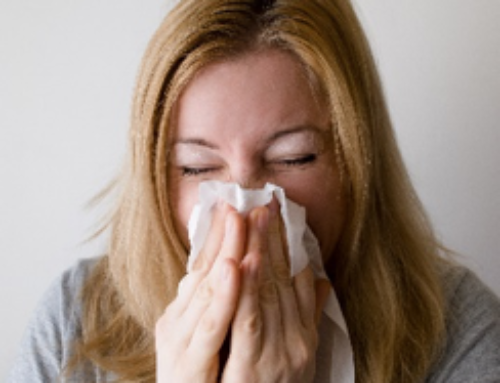Flu season is just around the corner. The CDC says that in the United States, on average 5% to 20% of the population gets the flu and more than 200,000 people are hospitalized from seasonal flu-related complications. Many of our patients at Enhanced Medical Care will come to us with the same question every flu season;“Will getting a flu shot make me sick?”The answer to this question is NO, and in fact getting the flu shot can also protect you from other seasonal illnesses such as various strains of the common cold.
What is the flu?
The influenza virus, more commonly known as the flu, is a viral pathogen that enters the body through the respiratory tract. It causes the respiratory tissues to swell up and become inflamed, and as the virus moves through the respiratory tract and into the blood stream, symptoms begin to appear. The flu is not the same thing as the common cold, which is caused by another virus, although the two have some overlapping symptoms. Colds tend to have milder symptoms than the flu and are less likely to lead to serious complications.
Symptoms of the flu may include:
- Fever of 100oF or higher
- Cough and/or sore throat
- Runny or stuffy nose
- Headaches and/or body aches
- Chills
- Fatigue
- Nausea, vomiting, and/or diarrhea (most common in children)
How can I prevent the flu?
While there are natural ways to prevent the flu that can certainly help to keep you healthy, the CDC recommends that the most effective way to prevent infection is by getting vaccinated yearly. People who are high risk for flu infection (children younger than 5, pregnant women, adults 65 and older, or people with a respiratory disease) should certainly be vaccinated, but even healthy adults should protect themselves against the virus. While the flu vaccine may not prevent infection from the virus 100%, it will help any illness due to infection be a milder case.
A study published in the New England Journal of Medicine looked at the effects of vaccination in terms of the frequency of upper respiratory illness, sick leave from work, and use of health care services in healthy, working adults. The study found that“vaccination was associated not only with a reduction in days of work lost because of upper respiratory illness but also with a reduction in absenteeism due to all illnesses. Upper respiratory infections accounted for approximately 65 percent of sick-leave days during the study period.” In other words, getting the flu shot can not only reduce your instance of contracting the influenza virus, but can also prevent primary infections from various cold viruses or secondary infections associated with the flu.
Productivity in the working world can take a serious hit when sickness is going around, but one defense you can easily take to prevent feeling lousy and missing work days is to simply get vaccinated. A step in primary prevention in corporate wellness programs is to ensure employees get their flu shots. Protecting yourself from infection can help to protect your family from infection as well.
What is a flu shot?
The flu shot is an vaccination that contains 3 inactivated strains of the year’s most common flu viruses including the well-known H1N1. While reactions to the flu shot are minimal, some patients may experience soreness, redness, and/or swelling at or around the injection site and perhaps a very low grade fever due to a heightened immune response. Because the virus in the injection is inactive, the flu shot will not give you the flu. As said before, the flu shot is the best way to reduce flu infection as well as other respiratory illnesses that can sneak up on you at the office, around school, or when you’re out and about.
Enhanced Medical Care now has this year’s flu shots in office! If you are a current patient, contact us to schedule a time for you and your family to stop by. Not a patient but you are interested in our services? Check out our membership benefits andschedule a free consultation today!
To your health!







[…] season is upon us and even if you have protected yourself from infection by getting your flu shot, you may want to take extra precautions to ensure a healthy cold and flu season this winter. Adding […]